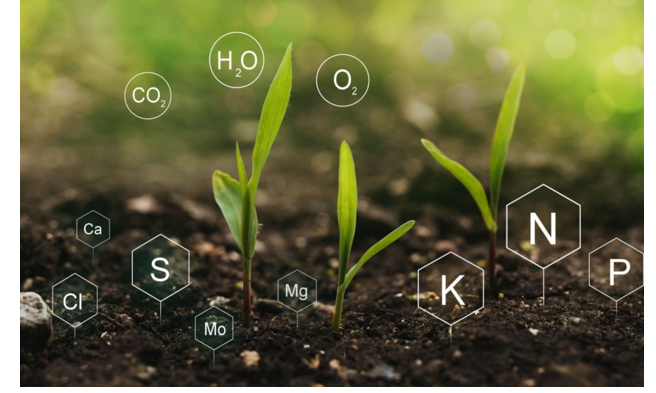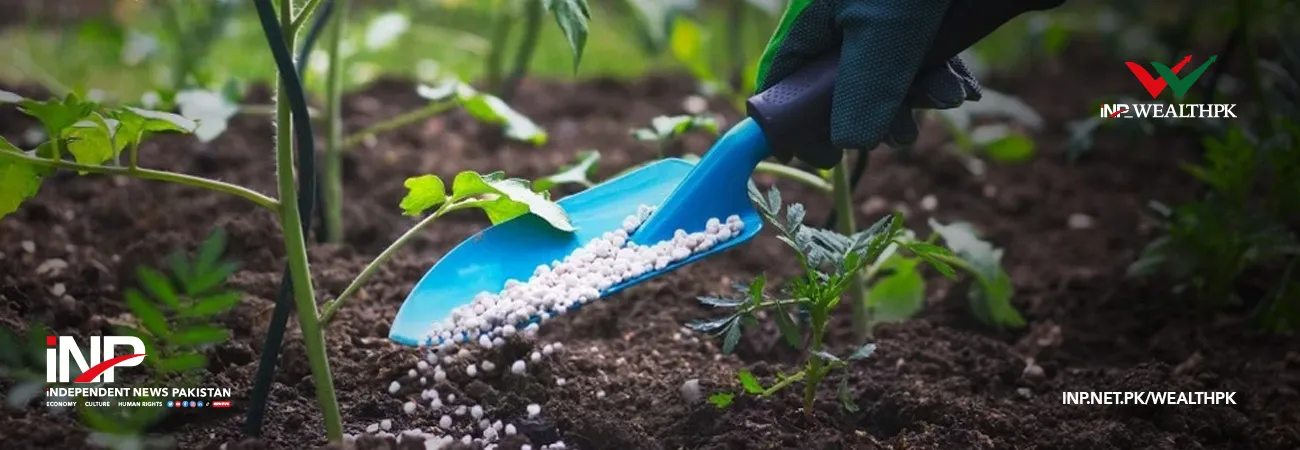INP-WealthPk
Arooj Zulfiqar
Optimised fertilizer management can help promote sustainable agriculture, boost crop yields and preserve soil health.

“With the agricultural sector contributing approximately 24% to the country's GDP and employing nearly 40% of its workforce, optimising fertilizer use is essential for enhancing crop yields while preserving the environment,” stressed M Bilal, a senior scientific officer at National Agricultural Research Centre (NARC). Talking to WealthPK, he said, “Fertiliser management not only impacts soil fertility but also plays a significant role in boosting productivity, improving farmers' livelihoods, and ensuring long-term food security.” He said, “Pakistan's agricultural system relies heavily on fertilisers to meet crop demands, particularly for staple crops such as wheat, rice and cotton. However, inefficient and imbalanced use of fertilizers has led to declining soil health, reduced crop productivity and increased environmental degradation. The excessive use of nitrogen-based fertilizers, such as urea, has resulted in nutrient imbalances in the soil, creating long-term challenges for sustainable agriculture.”

Fertilizer supply-demand situation
Bilal said, “The mismanagement of fertilizer applications and the lack of awareness among farmers about balanced nutrient use are major factors contributing to these issues. Additionally, rising input costs, supply chain disruptions, and inefficient distribution systems further complicate the problem, leaving farmers vulnerable to fluctuating fertilizer prices and availability.” To address these challenges, he advocated for an approach that promotes balanced fertilizer use, integrates organic and inorganic fertilizers, and adopts advanced technologies such as precision agriculture. “Precision farming, in particular, offers data-driven insights that allow farmers to apply fertilizers more efficiently, minimising waste while maximising crop yields. This method ensures that crops receive the necessary nutrients at the right time, avoiding overuse and reducing environmental harm.”
The NARC scientist said that technology held immense potential for revolutionising fertilizer management in Pakistan. “By harnessing satellite imagery, drones and sensors, farmers can monitor crop health in real-time, enabling precise fertilizer applications. These technologies help optimise inputs, reduce costs, and improve overall productivity. Additionally, mobile applications and digital platforms are being developed to provide farmers with timely information on weather conditions, soil health, and crop nutrient requirements.” Effective fertilizer management has the potential to deliver significant economic benefits to Pakistan's agricultural sector. By improving crop productivity, farmers can increase their incomes, reduce input costs, and contribute to the country's food security. Furthermore, optimising fertilizer use will reduce the country's dependency on expensive fertilizer imports, which currently strain foreign exchange reserves.
Credit: INP-WealthPk













